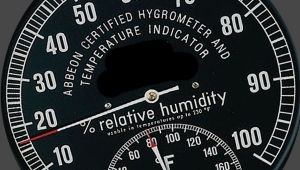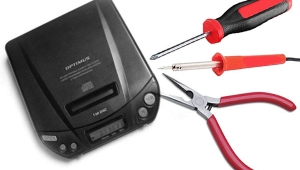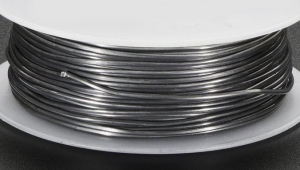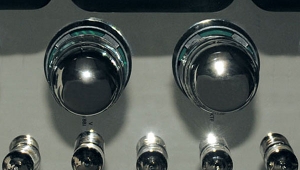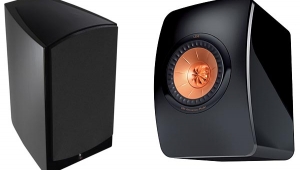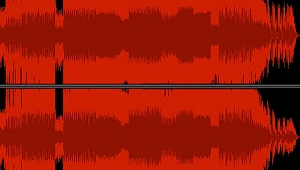| Columns Retired Columns & Blogs |
Invaded by the Grays Page 3
With demand running high, Ecstatic Audio goes into overtime production on the Behemoth, and quality begins to suffer. The second run of amplifiers has reliability problems. Or owners begin to report performance anomalies in their Behemoth or compatibility problems with other high-end audio gear. Or Ecstatic Audio is rumored to have financial difficulties. Or they release a Mk.II version of the Behemoth before the ink has dried on the Mk.I's reviews. The Behemoth Mk.II is either: a) "much better" (to use a reviewer's superlative) than the Mk.I, which reduces the Mk.I's desirability/price, or b) "much worse" than the Mk.I, which may implicate the quality of all Ecstatic Audio products---either the original Behemoth was not a representative sample, or its reviewer was overly generous with his praise.
Perhaps all of these things happen (not a far-fetched notion: it has), breathing more than life into the company's rumored money problems. The availability of Ecstatic products briefly increases as desirability and price decline. Dealers scramble to unload them any way they can, there is a mild flurry in the secondary market, and the Ecstatic Audio Corporation sinks slowly into the west.
To say there is widespread hypocrisy regarding the gray market is an exceedingly mild understatement. Dealers routinely cry "foul" when they lose a sale to an out-of-state competitor and generally regard the used-equipment underground as unfair competition. But it's a rare dealer indeed who says "no" to a mail-order buyer, or who hesitates to advertise in one of the used-equipment publications to get rid of old stock or slow-moving merchandise. Dealers are not above sending merchandise "sideways"---to other dealers, authorized or not---simply to free up some cash or to improve their standing with a supplier. It's a strange combination of competition and cooperation, like a long-haul bicycle race: The racers compete fiercely to beat the other guys, but they all work together in the pack in order to last the distance.
On the other hand, audio retailers can be territorial to the point of paranoia. XLO Electric's Roger Skoff was taken to task by one of his dealers for "whoring out the line" when he signed up another dealer only 600 miles away from the first. A dealer in New York ripped into Manley Laboratories' David Manley because a dealer in Arizona had shipped a Manley product to a customer in Skokie, Illinois---"invading his territory," the New Yorker claimed. Manley's response: "I'm not in control of commerce. I can't prevent someone from shopping." He might have added, "or shipping, either."
Manufacturers sign agreements with dealers that define their territories and spell out the conditions under which they may sell to a customer "over the border." This in itself is an obvious restraint of trade and probably unenforceable from a legal perspective, but retailers commonly submit to such stipulations in order to take on a line of desirable products. In theory, the manufacturer rides herd on his dealers to keep them all in line, but in practice, the small dealer who rarely sells outside his territory gets reprimanded, and the high-volume dealer who ships out of the state or out of the country every day of the week gets a "Dealer of the Year" award. Lest this be mistaken as an indictment of manufacturers, remember that they, too, have to move product to stay in business, and sometimes that means any way they can for them as well.
Overseas markets can be very lucrative for makers of exotic audio equipment. They go to elaborate effort and expense to set up foreign distributors, who in turn establish their own networks of dealers. But a manufacturer's enthusiasm to open new markets can work against him, and the gray marketer may wind up slashing his own throat, as in a story told by Roger Skoff: "In foreign countries gray-marketing is a major issue. Hong Kong complains that Singapore is gray-marketing, Singapore complains that Hong Kong is gray-marketing, Thailand complains that Singapore and Hong Kong are gray-marketing, Taiwan complains that Thailand is gray-marketing...everybody in Southeast Asia is accusing everybody else. When we set up a foreign distributor he is granted exclusive distribution for a given territory, for his country. He is free to set up dealers however he likes, and to charge whatever he likes---which may be higher than the selling price in the States.
"When the trade embargo with Vietnam was lifted, we got a letter from the 'Viet Tien Sewing Machine Company' asking to distribute our products in Vietnam. We signed them on, as did several other high-end manufacturers. We started selling them large quantities, and I was scratching my head, going, 'Vietnam? There have got to be a lot of rich hi-fi crazies to support all this business.' It was real simple. They were buying our product 'for Vietnam,' but having it sent to Singapore, which is a duty-free port. They have most-favored-nation status with Singapore, as do any number of nations, so Singapore is a turnaround port for them. It's cheaper than having the goods sent to them directly.
- Log in or register to post comments

